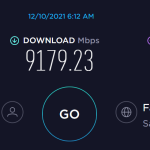10 Things to Do Before Starting A Business
Starting a business is not a decision to be taken lightly. Investment and financial planning are two things to keep in mind before you start a business. With nine out of ten new businesses going under within the first five years, it’s a cost many can’t afford. You have to wear numerous hats, work unsocial hours, and forgo paid vacations. Combining these factors often results in a loss of sleep, money, family time, and relationships. However, 84% of business owners said they’d do it all over again!
If you’re to join the successful few, there are some factors to consider before starting a business and things you need to know about running one. Becoming an entrepreneur is, for most, an evolutionary process, where we grow along with our company. Allow us to help, to ensure your business evolves. Here’s 10 things to do before starting your business.
1. What Is The First Thing To Do Before Starting a Business?
There’s little point in investing your time and effort if you can’t afford to bring your new business to fruition. Start by calculating your net worth, improve your credit score, clear any outstanding credit card debts, and add up all available financial reserves, such as savings. Ensure you can start your business without jeopardizing your present situation. Ideally, have enough savings to cover household expenses, mortgage and car repayments for a minimum of a year.
2. Research Your Business Opportunity
If you’re familiar with the business you’re entering, you know what you’ll require, such as experience, staff, and equipment. However, if you’re entering an unknown market place based solely on either a good business idea, fulfilling a life-long dream, it pays to do your research. Avoid learning on the job as it’s often expensive and stressful, due to mistakes and time lost. Try working in the industry for a couple of months (even for free), as the experience you’ll gain will be invaluable. If that’s not possible, contact people in the same business and seek their advice. Entrepreneurs are a helpful bunch and are often willing to share advice, that might help you avoid making the same mistakes they did.
3. Research the Market
Always research a market to ensure it’s viable and there’s space for your business by conducting market analysis. Some things you should know before starting your business are:
- Who dominates your market, and can you provide something that will enable you to compete?
- What are the marketing strategies required for promoting your business?
- Have you the skills to implement such strategies?
- What are the sales cycles?
- Who’s your target market?
By answering these questions, you’ll gain the knowledge required for making the right decisions before starting your business.
4. Develop a Customer Profile
After identifying your competition and market requirements, you must determine your target audience. As you have to know who they are, where they are, and how they purchase your product or service to reach, connect, engage, and sell to them. A customer profile finds those answers by creating a semi-fictional representation of your target audience. You make it using market research and any real data you can obtain about your future customers. Some ways of finding that information by looking at your competitor’s websites, social media platforms, their FAQs, and any reviews. When creating your profile, use your customer demographics, their motivations, behavior patterns, and pain points to ensure you make one that correctly portrays your target audience.
5. Create a Marketing Plan
Every new business should have a marketing plan. Your plan will act as a guide, one you can refer to as you move forward while establishing your business. And a clear marketing plan also outlines your approach, enabling you to reach your goals. Your plan serves to identify the right marketing channels and strategies for your business. It could be a website with an email campaign to drive leads or social media to promote your physical store and connect directly with your customers. Or you might need to use local platforms such as niche press, radio and Google My Business.
6. Create A Brand For Your Business
Easy to say, but is it easy to do? Fortunately, it’s never been easier thanks to the range of branding tools now available. And it’s just as well because branding is essential for business growth. Consumers have infinite business options to choose from, and it’s the businesses with relatable and consistent branding that succeed in engaging and connecting with their target audiences. And as branding creates familiarity, consumers get to know about your company the more you brand it.
An essential element of any brand is authenticity, as 64% of consumers said shared values were the main reason they choose to use a brand.
7. Secure Your URL, Then Name Your Business
If that sounds like putting the cart before the horse, but hear us out. You need a website to be in business. If you think otherwise, you’re in for a cold, sharp shock because 97% of people check a business’s online presence, before deciding to visit them. So, you want to ensure the business name you’ve chosen is available as a URL before registering and paying for advertising. But if your first choice isn’t available, ensure what you do use is memorable, easy to say and write, and looks good in both a digital and physical format.
No matter how small your business is right now, registering your business name is a smart move. Get to brand your company, gain credibility and gain more customers to get an identity of its own.
8. Legal Things To Do Before Starting Business
You have to establish your legal entity before trading and obtain the necessary insurance, licenses, and permits. Ideally, if you can afford to, you should incorporate your business as an S-Corp or an LLC to remove personal liability. Another reason is consumers tend to trust companies with these types of legal structures attached, more than a sole proprietorship. You can determine your legal requirements regarding insurance, licenses, and permits by searching your state website.
9. Apply For Your EIN Number And Business Account
Once you’ve registered as a legal entity, you can apply for an EIN (Employer Identification Number) via the IRS website. When you receive it, you can open a business bank account. Having a business account helps to simplify your annual returns and decreases your accountancy fees.
10. Develop Your Business Product or Service and Test
If you’re selling a product, now’s the time to order samples and test them; most suppliers provide pre-order examples for this purpose. Whatever your product, test it in real-life situations and by as many non-biased users as possible. If you’re making a product, produce a batch and send it out to family and friends. If you have a social media platform, have followers receive the product and provide feedback directly (not reviews). Also, it helps if you add a question form/checklist, so they know what to assess. If it’s a service, provide test runs for friends and family, or offer your service for free to a local company.
About Fastmetrics, Inc. Building & Business ISP
Since 2002, Fastmetrics is the Bay Area’s only dedicated business ISP. We provide telecommunication services in California and the San Francisco Bay Area. Reliable service – backed by better live and local support. From install to 24-7 proactive monitoring, get treated like a VIP customer. Not a number by a faceless call center. We specialize in managed business internet and phones, dedicated high speed business fiber internet, business WiFi, SIP voice solutions / UCaaS and managed network services. We are a Microsoft and Cisco Meraki Partner. Our team are Certified Cisco Specialists, Ubiquiti Enterprise Wireless Accredited and Polycom Authorized Solution Advisors. We take care of your business network, so you can focus on growth.









